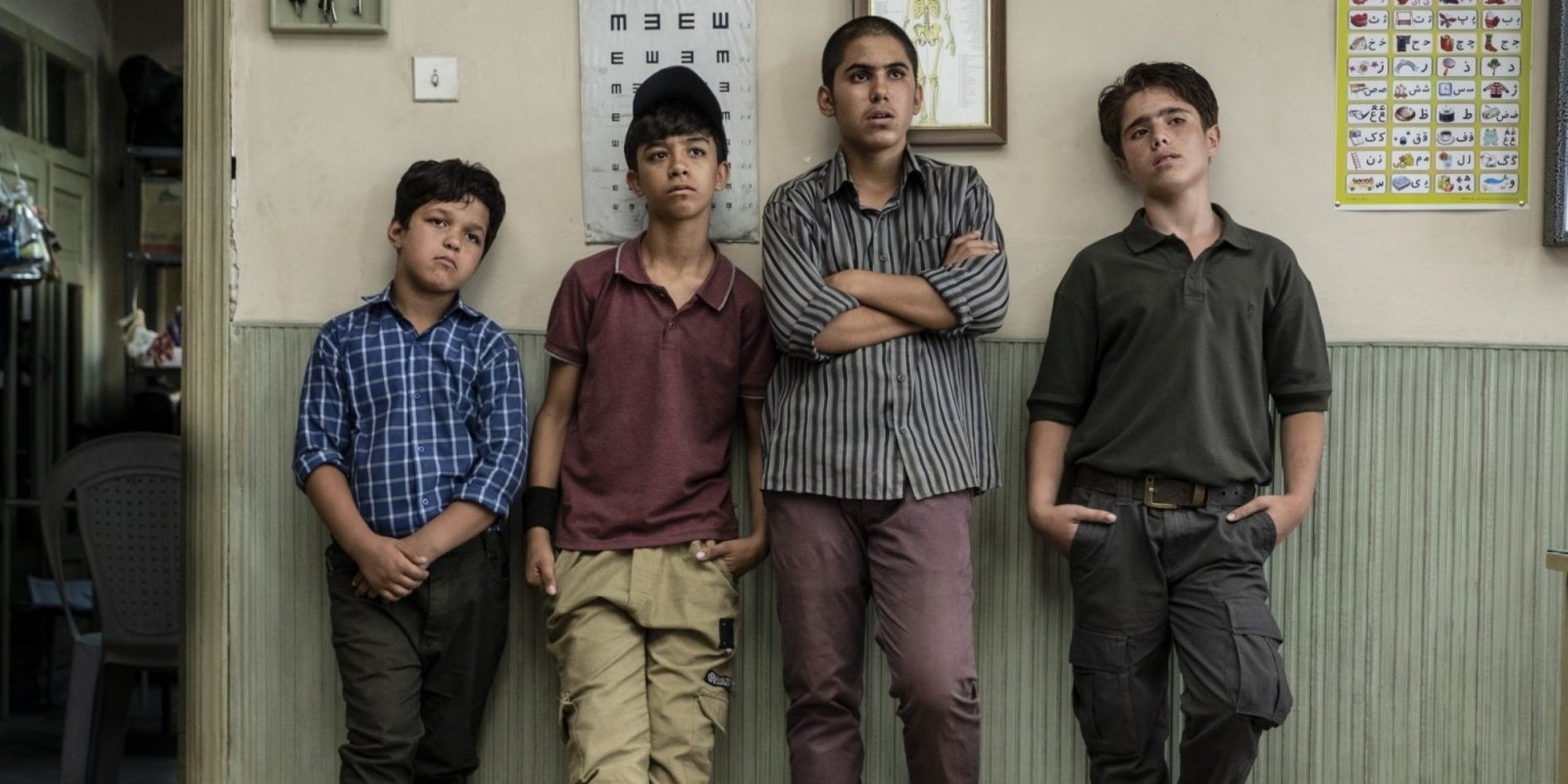
- Golden Globe Awards
Sun Children (Iran): Interview with Director Majid Majidi
Iranian director Majid Majidi’s Sun Children is dedicated to “the 152 million children forced into child labor and those who fight for their rights.” In the bustling city of Tehran, local crime boss Hashem (Ali Nasirian) has commissioned the 12-year old Ali (Roohollah Zamani) to dig a tunnel under the Sun School, where a hidden ‘treasure’ is to be found under the cemetery. Ali encourages 3 gang members Reza (Mani Ghafouri), Mamad (Mohammad Mahdi Moursavifar) and the young Afghan refugee Abolfazl (Abolfazl Shirzad) to enroll with him in the school, which is a charity funded school for street children. Their mission is to dig the tunnel to get access to the treasure whenever they get the chance to escape lessons or get access to the basement.
“I am guessing that the number 152 million is an understatement,” says director Majid Majidi, who based the story on a real school named “Sobhe Rooyesh” or “morning of growth”, which was managed by an NGO and located in the South of Tehran. The school is not subsidized by the government but by voluntary contributions. “Hence, we are facing an international problem that needs to be acknowledged and then addressed worldwide. Any form of child labor is an attack on the right of children, first and foremost on their fundamental right to education, which is at the heart of the film.”
As the young boys suffer from the lack of responsible fathers, the teacher at the Sun School, Mr. Rafie (Javad Ezati) becomes the role model the children are missing in their lives. “Well, the importance of the presence of a father or a father figure is undeniable,” says Majid, “and unfortunately in these families, the father is often absent; either in prison or dead because of drug use. Considering the fact that in oriental families, especially in this strata of society, it is the man of the house that financially supports the household, the absence of the father produces a large void, both emotionally and financially and therefore makes the already hard life even harder.”
Ali’s mother is in a psychiatric hospital and his motivation to work so hard to find the treasure is to help his mother get out of the hospital. In spite of being a criminal, making a living as a thief, Ali is a sensitive, loyal and highly responsible child.“This boy like others in his situation, is faced with the difficulties of life at a very young age,” says Majidi. “He has to replace the absent father and take responsibility for the whole family. That is the reason why he has to grow up before his time. These kids are usually very responsible for their family and very kind to their younger brother or sister. It can be heartbreaking to realize how mature they have become at such a young age, they literally replace the absent father and play his role.”
Ali has a special place in his heart for the young Afghan refugee Zahra (Shamila Shirzad), who sells trinkets in the subway trains to help her family make a living in their new home country. “In Iran, according to the official statistics there are 4 million Afghan immigrants but unofficially the number should be around 7 million. Unfortunately, these immigrants are financially from the lower stratum of society and they are mostly illegal immigrants. For both of these reasons, they have to do odd jobs and work illegally. As well, because of this situation, their children usually don’t have any proper identity cards and can’t be enrolled in regular schools even if they could afford not to work. It should be noted that an important percentage of working children in Iran are from this immigrant community.”
The young actors in Sun Children are largely recruited from the streets of Tehran and bring realistic performances of street smart children that have learned to survive in a world where few people seem to care about them. The film focuses on these children and the kindhearted teachers through whom we get a picture of the broader social issues in modern Tehran such as the lack of both public and private support for schools for street children and the conditions of the Afghan refugees, which are exemplified by Zahra and her brother Abolfazl. It shows what happens when fathers are missing as role models for the young boys and the problem that both the drug trade and drug use causes.

